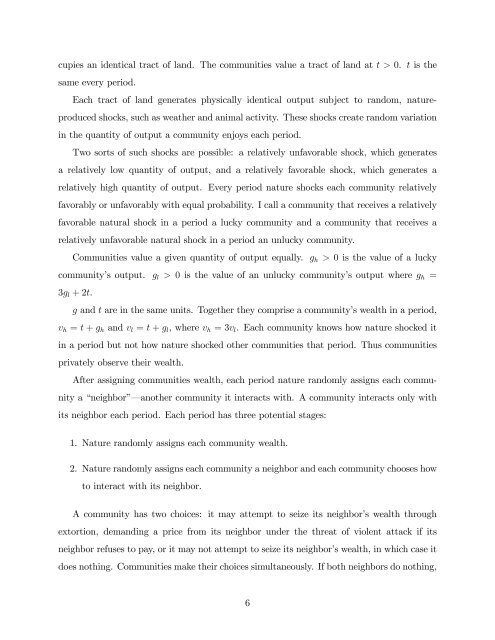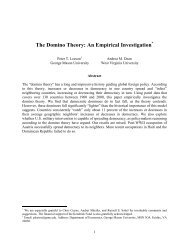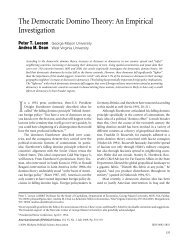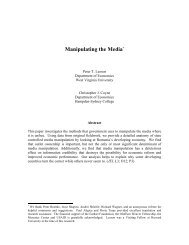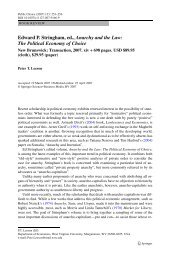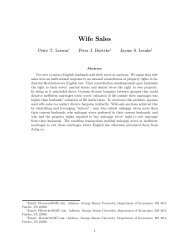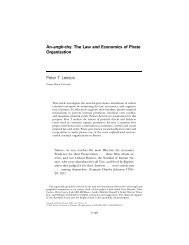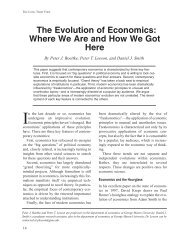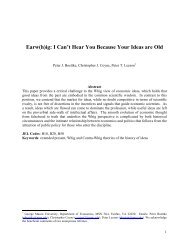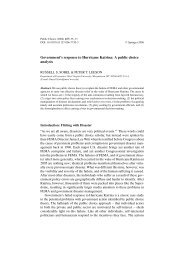Human Sacrifice - Peter Leeson
Human Sacrifice - Peter Leeson
Human Sacrifice - Peter Leeson
Create successful ePaper yourself
Turn your PDF publications into a flip-book with our unique Google optimized e-Paper software.
cupies an identical tract of land. The communities value a tract of land at t > 0. t is the<br />
same every period.<br />
Each tract of land generates physically identical output subject to random, natureproduced<br />
shocks, such as weather and animal activity. These shocks create random variation<br />
in the quantity of output a community enjoys each period.<br />
Two sorts of such shocks are possible: a relatively unfavorable shock, which generates<br />
a relatively low quantity of output, and a relatively favorable shock, which generates a<br />
relatively high quantity of output. Every period nature shocks each community relatively<br />
favorably or unfavorably with equal probability. I call a community that receives a relatively<br />
favorable natural shock in a period a lucky community and a community that receives a<br />
relatively unfavorable natural shock in a period an unlucky community.<br />
Communities value a given quantity of output equally. g h > 0 is the value of a lucky<br />
community’s output. g l > 0 is the value of an unlucky community’s output where g h =<br />
3g l + 2t.<br />
g and t are in the same units. Together they comprise a community’s wealth in a period,<br />
v h = t + g h and v l = t + g l , where v h = 3v l . Each community knows how nature shocked it<br />
in a period but not how nature shocked other communities that period. Thus communities<br />
privately observe their wealth.<br />
After assigning communities wealth, each period nature randomly assigns each community<br />
a “neighbor”— another community it interacts with. A community interacts only with<br />
its neighbor each period. Each period has three potential stages:<br />
1. Nature randomly assigns each community wealth.<br />
2. Nature randomly assigns each community a neighbor and each community chooses how<br />
to interact with its neighbor.<br />
A community has two choices: it may attempt to seize its neighbor’s wealth through<br />
extortion, demanding a price from its neighbor under the threat of violent attack if its<br />
neighbor refuses to pay, or it may not attempt to seize its neighbor’s wealth, in which case it<br />
does nothing. Communities make their choices simultaneously. If both neighbors do nothing,<br />
6


